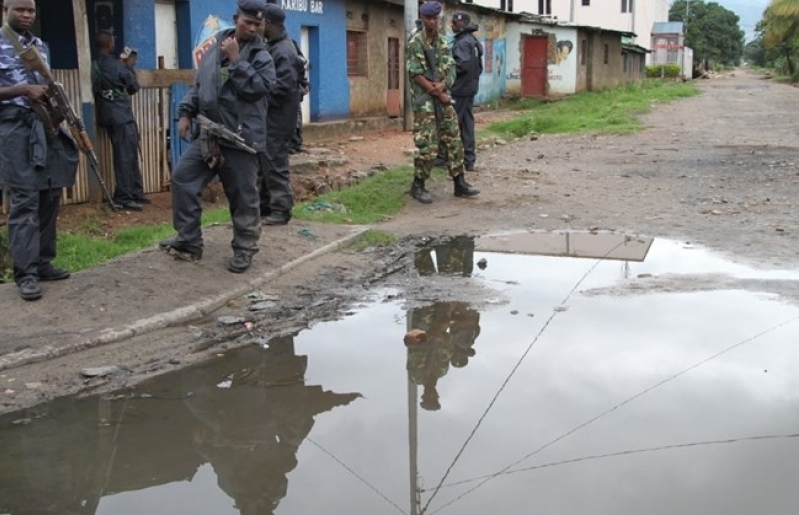
Burundi's political violence threatens to spiral into an ethnic or regional conflict but the United Nations is less equipped to deal with it than it was in Rwanda before the genocide in 1994, a U.N. human rights official said on Tuesday.
"It's slipping and sliding we believe, unfortunately, down a very ugly slope," Scott Campbell, head of Central and West Africa at the U.N. human rights office, told a news conference.
At least 252 people have been killed and 200,000 have fled to neighboring states since President Pierre Nkurunziza decided in April to run for a third term. Three more bodies, hands bound and shot once, were found on Tuesday, Campbell said.
Burundi ended a 12-year civil war in 2005, when Hutu rebels fought the army led by Tutsis, the same ethnic divide that led to Rwanda's 1994 genocide in which 800,000 people were massacred.
Campbell said that while Burundi's recent violence had been political so far, Nkurunziza and the president of the country's Senate had used language reminiscent of that used in Rwanda before the genocide, calling on supporters to "get to work", which in Rwanda meant "organizing mass killings".
But the United Nations is less well positioned to respond to the warning signs in Burundi than it had been in Rwanda in 1994, he said, with no political or peacekeeping presence.
"The (U.N.) Security Council is looking at how to react quickly should there be a need to move in forcefully with troops with preventive capacity. But I think there's a huge lesson to be learned about the risks of being passive and actually withdrawing from situations of conflict."
The U.S. Special Envoy to Africa's Great Lakes region, Thomas Perriello, said on Tuesday Washington had grave concerns about the deteriorating political situation in Burundi.
"The U.S. government is alarmed by the violent and incendiary language used by the Burundian government as well as violence committed by security forces and anti-government actors," Perriello said in a statement.
On Monday, U.N. High Commissioner for Human Rights Zeid Ra'ad Al Hussein and the U.N. Special Adviser for the Prevention of Genocide, Adama Dieng, told the Security Council that Burundi was in danger of drifting into mass atrocity crimes and could be facing imminent catastrophe.
The international community was beginning to grasp at straws, Campbell said, and the regional countries and the African Union needed to do more to help to resolve the crisis.
"The president does still have some strong allies in the region and he's not feeling enough pressure to rein in the situation, to convene an inclusive dialogue," he said.






